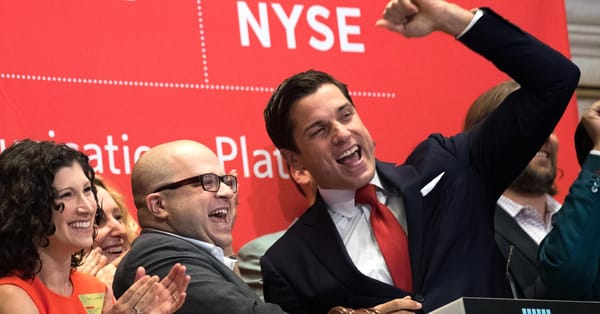
Twilio's initial public offering marks the first U.S. venture-backed tech IPO of 2016. It entered the market on a day filled with uncertainty as the world awaits the outcome of the U.K.'s referendum on its European Union membership.
The San Francisco-based Twilio has grown quickly by selling software that helps companies communicate with customers using voice, video and messaging in an anonymized manner. Uber, OpenTable, and Nordstrom are some of the company's clients.
The company hits the public market having yet to turn a profit. In 2015, the company's revenue almost doubled to $166.9 million, but it still posted a net loss of $35.5 million.
"We're just scratching the surface," Lawson said. "It is literally day one of the conversion of communications from its legacy in hardware and physical networks to its future, which is based in software. Where software developers, if they can dream up an idea of how we can communicate better -with maybe a company that we do business with - that developer can go build off Twilio. And if it works, scale it up."
It comes as the tech sector has lamented a drought of public offerings: There have been just 40 IPO pricings this year, according to Renaissance Capital, 15 of which occurred as late as May.
Twilio is on the 2016 CNBC Disruptor 50 list, and is one of only 8 companies to make the Disruptor 50 list in all four years of the list's existence. Twilio is also the eleventh CNBC Disruptor company overall to go public.
"We see this as the beginning of a very long to improve the world's communications with the power of software," Lawson said. "We truly see every company can benefit from better communications. Whether that is retailers better communicating with their customers ... whether it's travel, whether it's real estate."
- CNBC's Lauren Thomas and Anita Balakrishnan contributed to this report.
 Twilio: The first U.S. venture-backed tech IPO of 2016 Page 1 Page 3
Twilio: The first U.S. venture-backed tech IPO of 2016 Page 1 Page 3